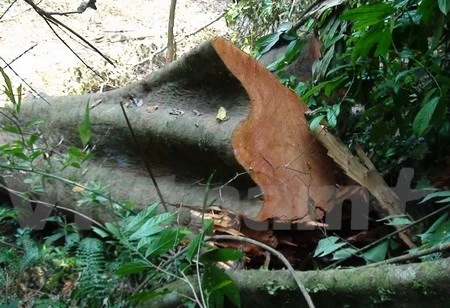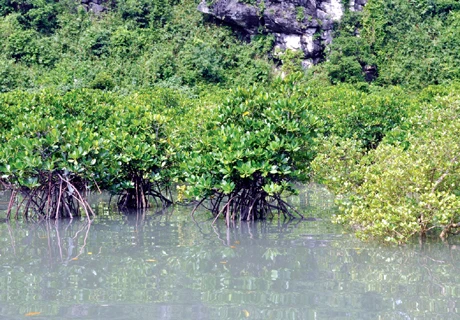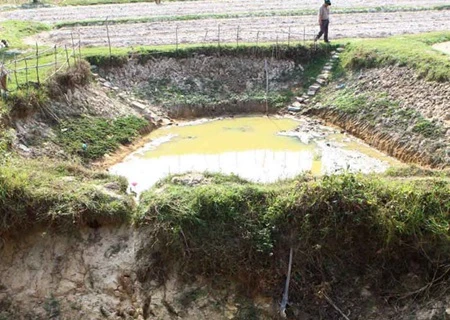A community-based group to manage the Con Chim eco-system in southern Tra Vinh province, established two years ago by Oxfam—a global aid and development charity, has helped transform the riverside area of Con Chim River into a green land and improve local incomes.
The Con Chim eco-system management group includes 100 households living along the banks of Con Chim River in Hoa Minh commune, Chau Thanh district who previously lived off deforestation and destructive fishing practices.
To join the group, each member household had to commit to ending deforestation and illegal fishing and protecting natural resources.
The group received 600 million VND (27,500 USD) from Oxfam to patrol the area and prevent harmful activities while impoverished households received 10-15 million VND (658-687.5 USD) to switch to more sustainable jobs like cattle breeding, rice growing and fish farming.
This is the first model for ecosystem preservation and resilience to the impacts of climate change in Tra Vinh and the entire Mekong Delta region, Oxfam Project Coordinator for Mekong Delta Nguyen Thi Dieu Hien said, adding that Oxfam is willing to expand the same model in other regional provinces to create a greener environment and improve the livelihood of local residents.
Sonneratia forests were grown just above human-head height along the banks of Con Chim River as the walls to stop rising tides and landslides.
The thriving forests have also provided shelter for many types of fish and prawns, bringing great economic benefits to locals who are only permitted to fish between July and March of the Lunar Calendar, revealed group member Nguyen Thi Bich Van.
Local farmers were encouraged to shift to integrated rice-prawn farming.
Con Chim village now has 34 hectares of rice-prawn farming lands, generating 100 million VND (4,583 USD) for each hectare, added Nguyen Van Pha, another member.-VNA

JICA-funded forest management project under review
A conference to review the project Sustainable Forest Management in the Northwest Watershed Area (Susform-Now), funded by the Japan International Cooperation Agency (JICA), was held in on July 30.

























